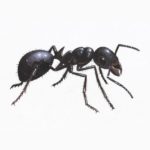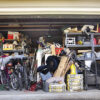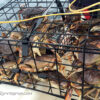If you’re like most parents, every now and then you probably wonder quietly to yourself “Am I a failure as a parent?” In the case of Howard Ryerson of Danville, VA, I hate to break it to you, but the answer is Yes, Howard, you are.
So for the rest of you out there, let’s find out just how good a parent you are by taking this amazingly accurate scientifically proven assessment to measure your parenting effectiveness.
Q1: Are you a parent?
Q2: Do you live in either the United States or Canada?
Q3: Are you Caucasian?
If you answered YES to all three of the above, then statistically speaking, you are almost certainly a TERRIBLE PARENT. In a few years your kids will most likely take a job asking people if they would like to Super Size it for 25 cents more. That’s the conclusion (I draw) from Amy Chua’s controversial new best-selling book, Battle Hymn of the Tiger Mother.
 In case you’ve been without electricity for the past two months – perhaps you were rafting down the Amazon in search of a lost tribe – and you’ve never heard of this author or her book, let me be the first to welcome you back to Civilization. We’ve missed you. That’s Amy Chua pictured at right, carrying her younger child, Lulu, into the jungle, where she will leave her for three days to fend for herself after failing to get 100% on her 8th grade science quiz.
In case you’ve been without electricity for the past two months – perhaps you were rafting down the Amazon in search of a lost tribe – and you’ve never heard of this author or her book, let me be the first to welcome you back to Civilization. We’ve missed you. That’s Amy Chua pictured at right, carrying her younger child, Lulu, into the jungle, where she will leave her for three days to fend for herself after failing to get 100% on her 8th grade science quiz.
Chua is a second generation Chinese American and a highly successful Yale law professor. She recently wrote a book about how she has raised her two daughters in the traditional Chinese way. A media firestorm surrounds her book because of the controversial, draconian lengths she has gone to ensure her kids are perfectionist over-achievers – the way she and millions of other Chinese people who will eventually take over this country and become your boss were raised by their parents.
Chua calls her relentless parenting approach the way of the Tiger Mother. This parenting style – common throughout much of China – combines endless rote repetition and memorization of interminably boring drills with harsh discipline, chronic parental disapproval and deprivation of any form of happiness – until the child reaches say, age 27. So naturally, parents all over America are thrilled about this approach.
At first, however, some Western parents might be shocked by some of Chua’s extreme parenting techniques – including the now famous story of how she forced her seven-year old daughter Lulu to practice her violin for hours into the night with no food or bathroom breaks, until Lulu performed the piece perfectly. Chua once tore up handwritten birthday cards from her young kids and told them to start over because they hadn’t tried hard enough. She is loath to slather praise on her kids just for “doing your best” and demands perfection. In her book Chua recalls from her own childhood a time when she received an award for second prize. Her father was enraged, telling her “Never, ever disgrace me like that again.” (True.)
 I read Chua’s book and have become an ardent convert to the Tiger Mother approach. Let’s face it. Most American parents coddle their kids and praise them for the lamest achievement: “Great soccer game, Billy. You only gave up 7 goals today. As long as you had fun, that’s all that matters. I’m sooooo proud of you!” Even more embarrassing when you consider Billy is 37 years old and married. In China parents tend to set the bar much higher than we do here in the USA, internalizing an expectation of performance excellence that begins about the time their two-month old has discovered his thumb.
I read Chua’s book and have become an ardent convert to the Tiger Mother approach. Let’s face it. Most American parents coddle their kids and praise them for the lamest achievement: “Great soccer game, Billy. You only gave up 7 goals today. As long as you had fun, that’s all that matters. I’m sooooo proud of you!” Even more embarrassing when you consider Billy is 37 years old and married. In China parents tend to set the bar much higher than we do here in the USA, internalizing an expectation of performance excellence that begins about the time their two-month old has discovered his thumb.
In America, we’ve lost our competitive edge. If we are going to compete in the 21st century, we need to be more like the Chinese. Chua would argue – and I agree – that in the USA we’ve raised a nation of soft, spoiled, wimpy children by pampering them with such luxuries as meals every single day, comfortable shoes, and even their own bed to sleep in at night – not to mention clothing that they don’t even have to sew themselves. No wonder we’ve raised a nation of over-indulged kids with a sense of entitlement. Everything is handed to them. If you ask me, there’s nothing like a 14-hour day in a coal mine to teach your youngster the importance of self-discipline and responsibility. Ah, the good old days.
 Most of you know that I am widely considered to be a parenting expert (thanks in part to a chronic string of tragic parenting failures during the first 15 years of my kids’ early development). Some of you may also recall that I am the adoptive father of two Chinese daughters (Rachel and Emily can be seen at right). So this makes me an expert on the subject of Chinese Tiger parenting.
Most of you know that I am widely considered to be a parenting expert (thanks in part to a chronic string of tragic parenting failures during the first 15 years of my kids’ early development). Some of you may also recall that I am the adoptive father of two Chinese daughters (Rachel and Emily can be seen at right). So this makes me an expert on the subject of Chinese Tiger parenting.
I realize now that as the father of two Chinese children, I had a moral obligation to raise them applying the strict disciplinarian tactics of their biological ancestors back in the Middle Kingdom. I should never have introduced my Chinese daughters to such frivolous distractions like computers or dolls until they had at least reached 32. Now it’s too late for my kids. The Chinese Dragon is out of the barn. My daughters, please forgive me for not depriving you enough during your formative years.
That’s why I have just written my latest somewhat autobiographical parenting book, based on my own childhood experience. I titled my book: Chinese Tiger Mothers are Spineless Pushovers – Tough Love Parenting Lessons Learned at the Knee of a Chronically Absent Workaholic Authoritarian Judgmental SOB of a Father with No Sense of Humor.
I was blessed to have a crack-the-whip father who set the performance bar impossibly high so that I could learn about humility and failure on a daily basis. In many ways my father was much like Amy Chua (except that she looks better in high heels). Inspired by Amy Chua’s tough love approach, I have made some radical adjustments to my parenting approach.
First, I want to let you in on a little secret: You don’t actually have to be Chinese to be a good parent (although it helps). If you’re white or black, or even if you’re Hispanic, over time, you too can eventually become a good parent – IF you follow my proven six-step system. Before you know it, your kids will be calling you Tiger Mom (or Dad) – not to mention a few other creative words they may add to their vocabulary when describing their new feelings about their parents.
So what are these six simple steps to becoming a successful Tiger Mother? Well, you’ll just have to wait until next week’s column. As any Chinese Tiger Mother knows, patience is a virtue. In the mean time, get back to practicing your piano. You call that Bach’s Concerto in A Minor? I call it garbage. Do it again. And no bathroom break until it’s perfect. I don’t care if it takes you all night. That’s just my way of showing you how much I love you…. even though you continually disappoint me bitterly.
That’s the view from the bleachers. Perhaps I’m off base.
Click here to read Part Two in this series: Six Simple Steps to becoming a Tiger Mother (or Father)
© Tim Jones, View from the Bleachers 2010 – 2011












Very informative. I learn so much from your blog. You must have been blogging 12 hours a day in your formative years. I do have one question though. When my son calls me a pussy is he giving me the ultimate Tiger Dad compliment?
Dear Tim:
Next week: Six Simple Steps to becoming a Tiger Mother (or Father)
can’t wait!
“Unless you’ve been living in the Amazon rain forest without access to the Internet for the past two months…”
Actually, I’ve lived in a Puertoriccan rain forest jungle with dialup access to the internet for the past seven months. Both my kids are grown, one with three daughters of his own. I forwarded him your email with the link to this article. Question: can a jungle tiger parent survive the harsh winters in WI? — and re: “Judgmental SOB of a Father with No Sense of Humor” I may have been one; is the damage permanent?
Plainsong of the Chuppacabra Daddy
posted from: Santa Olaya, PR